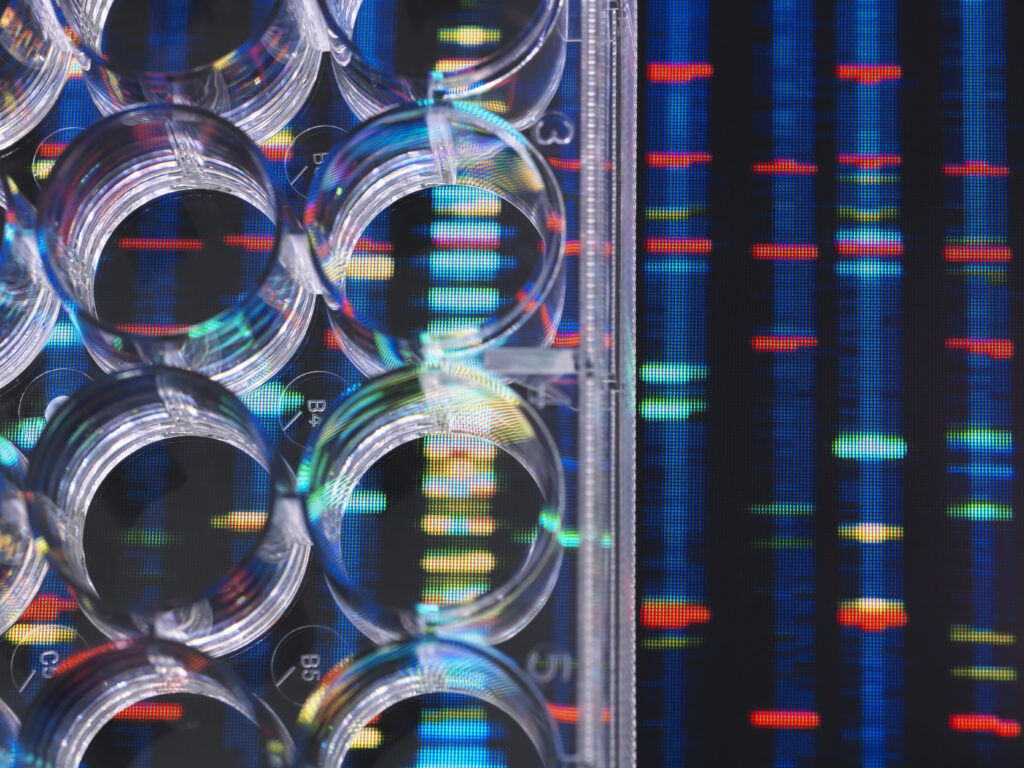Gene therapies for Duchenne muscular dystrophy (DMD) have been an area of intense research and Sarepta’s Elevidys is now the first one to be approved by the US Food and Drug Administration (FDA).
Elevidys was granted FDA accelerated approval for the treatment of pediatric patients four to five years of age with DMD who have a confirmed mutation in the DMD gene. It is indicated for patients who do not have a pre-existing medical reason preventing treatment with the therapy.
The approval is restricted to ambulatory patients within this narrow age range due to uncertainty around its effectiveness in older children, which Sarepta hopes to clarify in a confirmatory trial.
DMD is a rare genetic disorder that leads to progressive muscle degeneration and weakness. It primarily affects boys, affecting approximately one in 3,300 to 3,600 male births worldwide.
DMD is caused by the absence of dystrophin, a protein that helps maintain the integrity of muscle cells. Symptoms of DMD can include difficulties walking and running, falling frequently, fatigue, learning disabilities/difficulties, heart issues and breathing problems. The progression of DMD is often rapid, and those affected usually face a significantly shortened lifespan with severe physical limitations. Options for managing the symptoms of DMD have been limited.
Elevidys is a recombinant adeno-associated virus (AAV)-based gene therapy designed to deliver a functional copy of the gene that encodes Elevidys micro-dystrophin, a shortened version of the dystrophin protein (138 kDa, versus 427 kDa in molecular weight, respectively) that contains selected domains of the dystrophin protein present in normal muscle cells. It is injected into a patient’s muscle tissue.
XTALKS WEBINAR: Rare Disease Trials and Gene Therapy: Understanding the Patient Journey
Live and On-Demand: Tuesday, July 18, 2023, at 10am EDT (4pm CEST/EU-Central)
Register for this free webinar to learn about the challenges of accessing global patient populations, manufacturing, regulations and patient-centered protocol design in gene therapy trials for rare diseases.
The FDA approval came after several delays and a narrow advisory committee vote of eight to six in favor of the gene therapy’s risk-benefit profile. After the vote, the FDA extended the decision date by one month due to concerns it raised in briefing documents before the committee meeting.
It said the clinical studies didn’t provide “unambiguous evidence” that the treatment is “likely beneficial” for the patient pool, which included older children such as those six and seven years of age. Sarepta said it will continue evaluating Elevidys’ effectiveness among these ages in a confirmatory trial in hopes to remove age restrictions with an expanded label.
Additionally, the FDA said a “clinical benefit of Elevidys, including improved motor function, has not been established.” As such, the agency is requiring Sarepta to confirm the therapy’s clinical benefit as part of the confirmatory trial. The FDA said it will review the data from this trial “as quickly as possible to consider if further action, such as a revised indication or withdrawal of Elevidys, may be necessary.”
In its approval, the FDA said it considered the potential risks associated with the drug, the life-threatening and debilitating nature of the disease for these children and the urgent unmet medical need.
The therapy’s strong clinical safety data helped Sarepta secure the approval, as among 85 patients, only 13 serious side effects and no deaths or discontinuations due to adverse events were reported.
Elevidys’ approval was based on data from a randomized trial that showed the therapy increased expression of the Elevidys micro-dystrophin protein, which was used as a surrogate endpoint, in DMD patients aged four to five years of age.
From this, the FDA said it concluded the data demonstrated that an increase in this surrogate endpoint “is reasonably likely to predict clinical benefit” for children four to five years of age with DMD who do not have significant pre-existing antibody titers against the AAV rh74 vector or have other contraindications based on the inclusion criteria of the clinical trials.
It has taken Sarepta six years to develop Elevidys with several roadblocks in its journey, including two clinical holds due to safety concerns.
In a media call, Sarepta CEO Douglas Ingram revealed the $3.2 million price tag of Elevidys, a one-time gene therapy. He said an analysis suggested that the drug could be cost-effective at $5 million. Instead of a treatment outcome-based payment approach that has been adopted by other gene therapies to help with costs, Sarepta is working on “some innovative concepts” with payers, he said.
Ingram expects the launch to take a few months to pick up due to logistical and policy issues.












Join or login to leave a comment
JOIN LOGIN